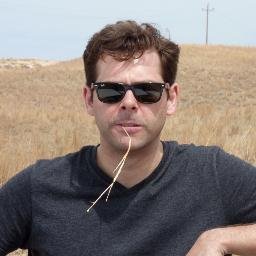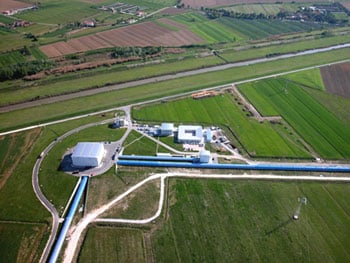Daniel Hoak is a Ph.D. student in Physics at the University of Massachusetts, Amherst, MA. He is currently a Fulbright Graduate Student to the European Gravitational Observatory in Cascina, Pisa, where he is working on the VIRGO Experiment. What follows is an interview carried out by the Fulbright Commission on the experience of Daniel as Fulbright Garduate Student to Italy.


Fulbright Commission: Hi Daniel! Could you please tell us something about your Ph.D. project here in Italy?
Daniel: I earned my PhD from the University of Massachusetts last September. My research was part of the LIGO experiment that recently detected gravitational waves from the collision of two black holes. In Cascina, I am working to improve the Virgo gravitational wave detector, which is the European counterpart to LIGO. Virgo will begin operations later this year in collaboration with LIGO, and it will dramatically improve our understanding of black holes and gravity.
Why have you decided to apply to the Fulbright Program to Italy? What did you know about Italy and the European Gravitational Observatory (EGO) in Cascina at time of your application?
Making Virgo a success is absolutely critical for the field of gravitational wave astrophysics. Coming here was an easy choice: this is where the excitement is for the next twelve months! There is a long history of collaboration between the gravitational-wave observatories in the United States and Europe. I was familiar with the people here, and they knew something about me. My past experience was something that could be useful to them, and I could learn a new set of tools and ideas.
Daniel, could you please describe us one of your typical days at the European Gravitational Observatory?
Right now we are installing the last few optical components in the instrument. This means working inside the vacuum chambers in an ultra-clean environment, aligning laser beams and adjusting lenses and mirrors. When the installation is finished we will have to make everything work in harmony, so we are also preparing our computer code and working to understand the software that controls the mirrors and lasers. The days are long, but my experience with LIGO last year shows that it will pay off.
How do you like your experience so far?
It’s terrific! Pisa is a very different than where I was working in the US (in the desert near the west coast, in Washington state). The Fulbright experience has definitely pushed me outside of my comfort zone.
As far as we know there are a lot of researchers coming from all over the world that are working on the LIGO-Virgo project. Could you tell us why is it so important to have such an international prospective on this project?
No single country can perform this research alone, and the recent discovery was a truly international accomplishment. The talents and perspective of scientists from many backgrounds are crucial. On a typical day in the Virgo control room you can hear four languages being spoken, as scientists from many specialties apply their expertise to make the detector work. And, more importantly: the science of gravitation waves absolutely requires that the instruments are spread widely across the globe! We need more of these detectors, and they need to be scattered around the world. That’s why the Virgo instrument in Italy, KAGRA in Japan, and the recently approved LIGO detector in India are so important for the future success.
Daniel, many of us are not so familiar with physics and gravitational waves. Could you please tell us why the discovery of gravitational waves is so important? How will it affect our societies and/or Science?
By detecting gravitational waves, we have begun to experience the universe and astronomy in a completely new way. It’s as if until now the universe was a television with the volume muted, and now we have turned up the volume. In one sense, this research completes Einstein’s theory of gravity, but in another sense it is the start of something very new and exciting.
Just one more question Daniel. If you could describe your Fulbright experience in three words you would say that the Fulbright Program is…
Here are five words: “a glimpse of the future”! Gravitational waves will be the astronomy of the 21st century.
